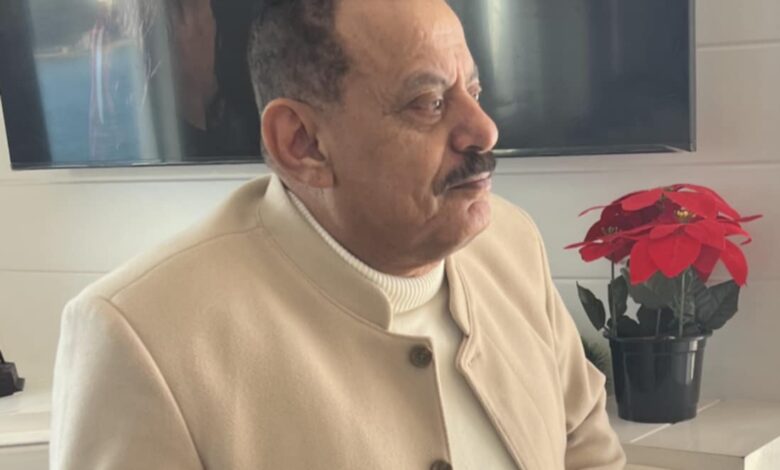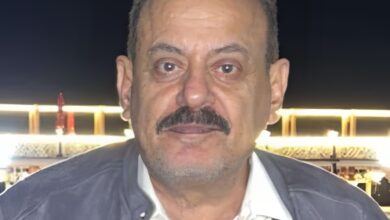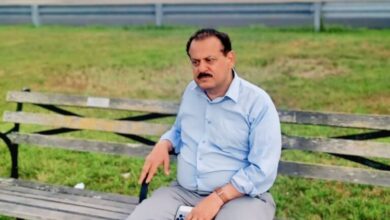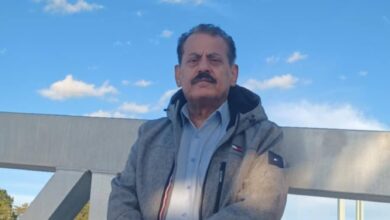The Return to the Village

Yemeni mp
Ahmed Saif Hashed
As we journeyed back to our village, leaving Aden behind, I observed the British soldiers stationed at the security checkpoints, dressed in khaki shirts, shorts, and military caps.
What captivated me most was the sight of each soldier at the military posts, saluting us with a formal gesture. They placed their hands firmly against their foreheads, greeting us with a respect that elevated our dignity, as if we were leaders rather than ordinary people. As we passed, they stood at attention, maintaining that salute until we were completely out of sight. My young mind buzzed with curiosity, wonder, and confusion.
I found myself asking innocent questions: Do they move? Do they hold that salute for long? Do they eat and drink like us? Why do they do this? I wished that the Land Rover transporting us would stop in front of each soldier, allowing me to study them closely and see how long they would maintain that salute.
I longed to soak in their presence for hours. They seemed almost otherworldly to me, akin to alien beings descended from the sky, stirring within me a multitude of questions and a profound sense of wonder.
Upon our return from Aden to our village, Sharar in Qabeyta, we were burdened by sorrow and the weight of long separation.
We chewed on our grief like salt and pus, our wounds deep and raw. We returned diminished by two, and I nearly became the third in a family that seemed on the brink of extinction.
Yet life is resilient, and it blessed us with a new sister, born against the odds, triumphing over both death and disease.
It is heartbreaking to return knowing we have lost two cherished members of our small family, Noor and Samia, who were the very blossoms of our existence.
The loss they left behind has carved deep wounds in our souls. We returned bearing a heavy sorrow and little in the way of belongings, leaving behind orphaned memories and two small graves—a toll of displacement that felt immense.
* * *
As I grew older, I began to grasp what I had once been unaware of. I uncovered fragments of knowledge that expanded my understanding. History revealed to us another face of occupation, distinct from the fleeting impressions I had previously gathered, which had filled me with astonishment and tenderness, leaving a lasting impact on my innocent consciousness.
These feelings lingered in my memory for years, filled with wonder and questions. I learned that occupation is a brutal, predatory force, devastating to a homeland striving to liberate itself from its grasp.
The British occupied Aden under a pretext more grotesque than the crime itself, employing cunning greater than that of a fox, persisting with various excuses and multiplying deceitful tactics.
When they encountered resistance, when someone dared to oppose their ambitions, their faces contorted with anger, and malice radiated from their eyes like ravenous beasts. They revealed a ferocity that rendered all other monsters pale in comparison, exposing much that had been hidden beneath a veneer of softness—elements we were unaware of, or that our innocence had shielded us from.
The occupation did not come to rescue us from our plight; it arrived solely for the interests and ambitions of its political leaders. The true nature of occupation is evident in its expansionist desires and the subjugation it enforces, resorting to violence and barbarity against those who resist or oppose it, especially when its softer strategies fail.
Among these strategies is the infamous “carrot and stick” approach, a policy I have experienced firsthand—one that mirrors the tactics of those who currently embody it. I continue to endure it today, struggling to adapt to an environment that feels utterly alien to me. This insidious policy is half coercive and half deceptive, yet ultimately destructive, akin to “gangrene” in its stealthy invasion, creeping in to devastate whatever it touches or extinguish the life of its host.
The military salute has always stirred a sense of wonder within me. My admiration for it lingered in my memory, and for many years, I would recall and mimic it with the innocent enthusiasm of a child. This majestic gesture raised a profound question in my heart: Why is such a salute granted to us, mere simple and ordinary people? Over time, I speculated that the soldier intended this heartfelt farewell to leave a positive impression on those departing for the northern lands, which he sought to claim piece by piece whenever the opportunity arose.
Just as a brutal occupation plagued the south, another heavy-handed oppressor loomed in the north, marked by its backwardness and alienation from modernity.
This occupation emerged from an era suffused with injustice and darkness, characterized by savagery and brutality. It came from a time long past, its estrangement deepening, yet it continued to encroach upon the future we sought, aiming to seize and possess what belonged to us. “How similar tonight is to yesterday.”
That salute resembled a deceptive trap or a false bait, crafted to create a captivating impression. As one matures, they often realize how naive and misled they once were, and how far removed the truth had been. This impression fosters a sense of welcome and acceptance of the occupation in the days to come, yet the people have voiced their decision, their words, and their revolution.
* * *
Today’s colonizer differs significantly from the one of yesterday. Modern colonialism has become both distant and concealed, achieving its nefarious goals, expansive ambitions, and exploitative policies through local agents and forces.
It supports corrupt authorities that willingly offer their nations to it.
These authorities open accounts in its banks and invest in its projects and companies, intertwining their fates with its interests.
They enter into both public and secret agreements, engaging in dubious dealings that enhance their subservience and dependency, all while aligning themselves with colonial agendas, employing various methods to plunder their own people.
It strives to confine the state within the boundaries of its functional tasks, implementing its policies and ambitions while confronting those who reject or resist its subjugation. It seeks to maintain a state of backwardness, keeping it captive and tethered to its own interests.
Furthermore, it exploits or manipulates this state to wage fourth and fifth-generation wars designed to divide and dismantle other nations, allowing it to seize their resources at minimal or no cost.
In the meantime, the price paid by the people is the loss of their homeland—an exorbitant and devastating cost that cannot be compensated or replaced.
* * *






